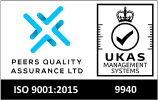Your CV is the first thing both a recruiter and hiring manager will see, so you want to make sure that it’s the best reflection of yourself as a candidate.
In reality, a CV is simply to write, but it can seem like a daunting task if you’re not sure where to start. Here are my top tips for writing a CV that will get you noticed:
Start with a short personal statement
At the top of your CV should be a short personal statement, summarising your skills, experience and motivations. Don’t be afraid to sell your skills in this section, as it’s the first thing any recruiter or hiring manager will read.
It’s also great to include a couple of sentences about your motivations and aspirations in your next role. At Rise, we motivationally match candidates to jobs so this is important for us! It helps the recruiter to understand what you’re looking for in your next role.
Include a short description for each previous job
To many of you, this will seem like obvious advice. However, I’ve noticed that many people just bullet point their previous jobs with no description. It’s hard for a recruiter to understand what part you played in your previous positions without this, also by including this information it will optimise your position in searches.
The description only needs to be short and sweet, highlighting your responsibilities in that position. Also, remember to include any achievements and promotions in this description.
Remember to include the dates of your employment as well.
Include any buzzwords from the job advert in your CV
As I mentioned previously, hiring managers tend to skim read CVs, and they will look for key words and experience. If the description of the job you’re applying for mentions you must have CCTV experience and this is something that you do have, make sure you highlight the word CCTV throughout your CV.
Also, when we search through our system for CVs, we search by keywords such as electrical, electronic, maintenance, installation etc. To ensure that your CV is present in any relevant searches, use any keywords (that relate to your experience) throughout your descriptions of your previous roles.
Ensure that your CV is up to date
Whilst this may also seem like obvious advice, I come across countless CV’s that are missing the most recent experience. This can result in you missing out on opportunities, so it’s always best to update your CV as soon as you leave a job, so it is always up to date.
Putting your CV in chronological order is also important as employers need to know your most recent experience.
Include any relevant training and certifications
Some niche roles require specific qualifications, and having this on your CV can help you stand out. As hiring managers tend to skim read CV’s, displaying all relevant qualifications could increase your chances of being shortlisted.
Keep your CV concise and to the point
Whilst you want to include the most important information (recent job roles, qualifications and a personal statement) you still want to keep your CV as concise as possible. If a CV is three pages long, a hiring manager is unlikely to read the last few pages.
Only include any key information, and try to limit waffling! If you’re struggling to cut down your CV, try asking a friend or family member to proofread it and you may find that a second opinion helps! I hope these tips are helpful in you finding your next role, and if you have any questions or would like further advice, feel free to contact me at Isabella.hammond@risetechnical.co.uk












